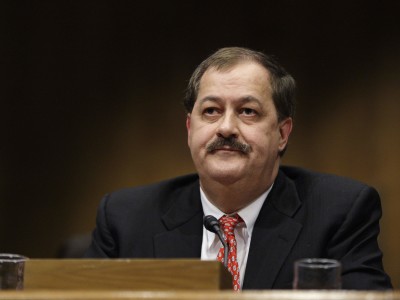General
Brexit Claims Its First Victim: The Environment
The new British government is turning sharply against environmental protection.
The Brexit vote elevated Theresa May to the Prime Minister’s office. One of her first steps has been an attack on environmental protection. In what the Guardian called the “most radical shakeup in the shape of Whitehall for years.” She abolished the Department for Energy and Climate Change and moved its functions into the Department for Business, Energy …
Continue reading “Brexit Claims Its First Victim: The Environment”
CONTINUE READINGRed, white, blue and smog
Fireworks leave behind a lot of pollutants
As a kid on the South Side of Chicago, summertime meant seeing White Sox games at Comiskey Park (technically now called U.S. Cellular Park, but I will never call it that). If the Sox won, there were fireworks. And on Saturdays, there were fireworks even if they didn’t. I have a distinct memory of asking …
Continue reading “Red, white, blue and smog”
CONTINUE READINGMajor Settlement Announced in Volkswagen Emissions Fraud Litigation
$14.7 Billion Civil Enforcement Settlement is a Victory for Consumers, Environmental Prosecutors
Federal and state environmental prosecutors today announced a proposed settlement of government civil enforcement litigation they’ve pursued against Volkswagen in response to the automaker’s acknowledged efforts to cheat federal and state auto emission standards and defraud consumers. The complex settlement, lodged with the assigned U.S. district court judge in San Francisco, requires Volkswagen to pay …
Continue reading “Major Settlement Announced in Volkswagen Emissions Fraud Litigation”
CONTINUE READINGThe Complexities of Implementing Brexit
Scores of regulatory arrangements will need to be negotiated. Lots of work for lawyers!
The larger implications of the Brexit vote are understandably getting a lot of attention. It’s clear, for instance, that the UK will need to negotiate some kind of trade agreement with the EU, and that it will probably want to negotiate one with the U.S. But there are myriads of issues that need to be worked out, …
Continue reading “The Complexities of Implementing Brexit”
CONTINUE READINGThe End-game for Diablo Canyon?
A landmark agreement supports the closure of a controversial nuclear plant.
Today’s announcement that the Pacific Gas & Electric Company (PG&E) has reached an agreement with several environmental and labor groups to plan for the eventual shutdown of the Diablo Canyon Nuclear Plant is a stunning development, when viewed in an historical perspective. PG&E has agreed not to seek new licenses for its power plant that …
Continue reading “The End-game for Diablo Canyon?”
CONTINUE READINGThe Irony of a Developing Nation’s Climate Agenda
The challenge of developing and decarbonizing at the same time
Mexico has been busy. Or at least, its energy and environmental ministers have been. Over the last several years, Mexico has held its first auction for renewable energy contracts, opened its energy market to private competitors, and increased its renewable energy capacity by more than thirty times the level in 2008. At the same time, …
Continue reading “The Irony of a Developing Nation’s Climate Agenda”
CONTINUE READINGTrump, Sanders Voters and Climate Change
If you need even one reason to vote for Clinton, climate change ought to suffice
I don’t pretend to understand the allure of Donald Trump. I am an unabashed supporter of Hillary Clinton. I appreciate that many people I know and respect are Bernie Sanders supporters. I am hoping that, once Clinton officially becomes the Democratic candidate for President, Sanders supporters will work hard to elect Clinton as President, even …
Continue reading “Trump, Sanders Voters and Climate Change”
CONTINUE READINGIs Protecting Public Health Now a Partisan Issue?
Congress’s failure to deal with the Zika threat is a symptom of a bigger problem.
Congress seems to be unable to come up with funding for an effort to combat the zika virus. Instead, congressional leaders told the government to use existing funding, so it has been forced to divert hundreds of millions of dollars from fighting ebola. (You remember that Congress was completely frenzied about the risk of ebola in …
Continue reading “Is Protecting Public Health Now a Partisan Issue?”
CONTINUE READINGFormer Massey Energy CEO Sentenced to Prison for Actions Leading to 2010 Coal Mine Disaster
What Broader Environmental and Worker Safety Enforcement Lessons Can Be Learned Here?
A federal district judge on Wednesday sentenced Don Blankenship, the former Chief Executive of Massey Energy, to serve one year in federal prison–the maximum term allowed by law–and to personally pay a criminal penalty of $250,000 for Blankenship’s acts of omission and commission that led to the notorious 2010 coal mining disaster at Massey’s Upper …
CONTINUE READINGUnderstanding Climate Skepticism
Four hypotheses to explain the endurance of climate skeptics
2015 was the warmest year on record. Sea level rise has been accelerating in recent decades. To myself and, I suspect, most readers of this blog, human-induced climate change is undeniable in the face of such developments, posing fundamental challenges to human well-being and biodiversity around the globe and into the future. Climate change is here and …
Continue reading “Understanding Climate Skepticism”
CONTINUE READING









